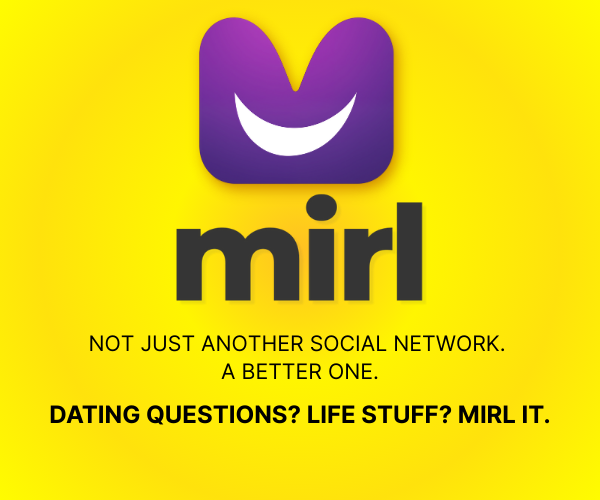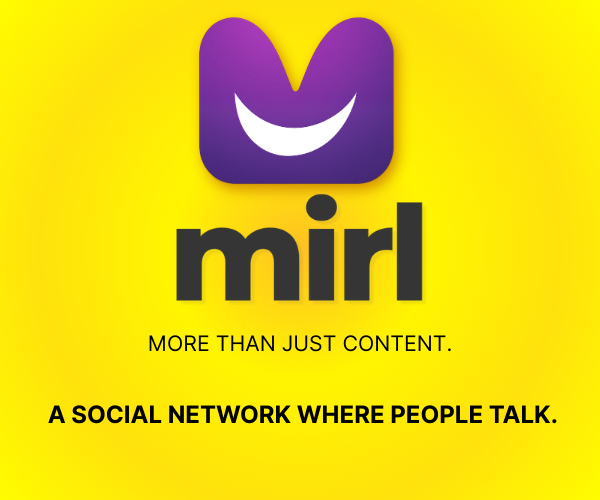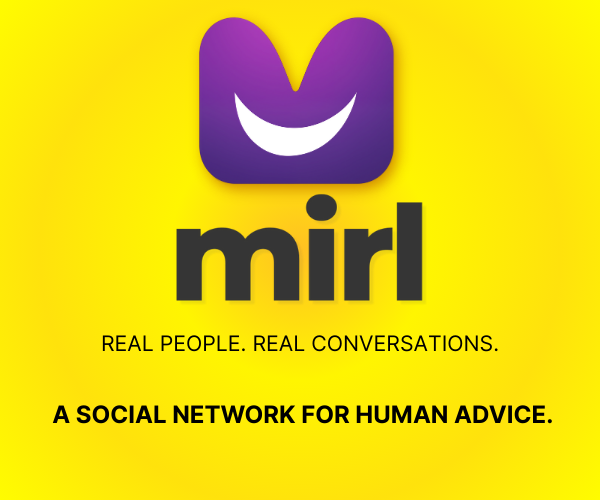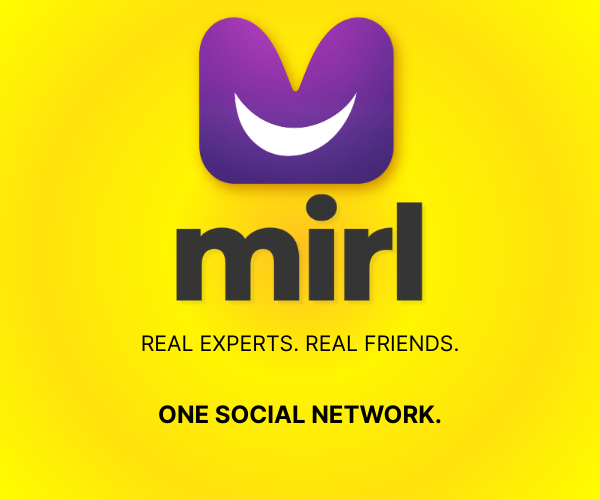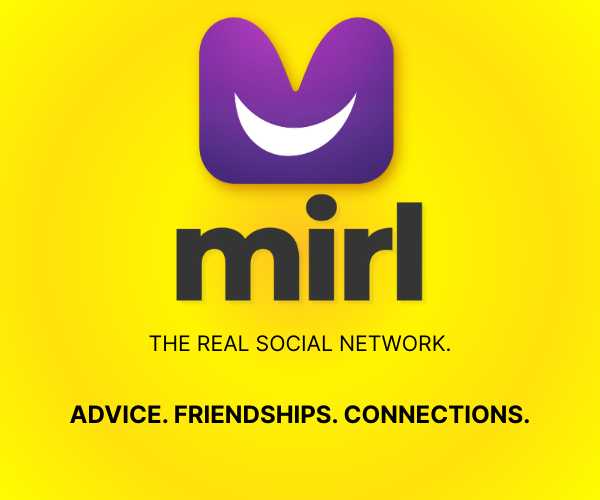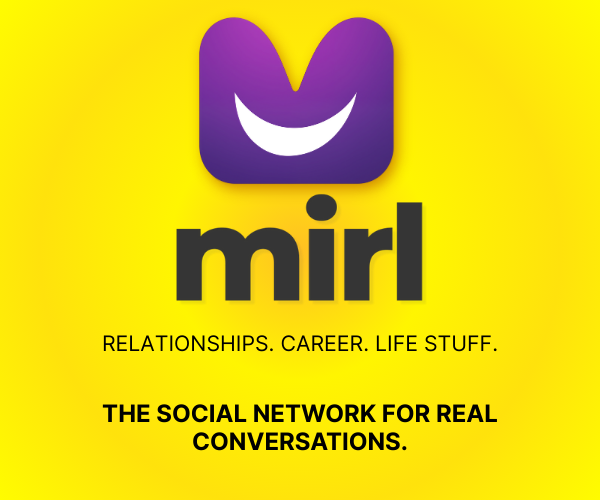Four Months Relationship: What It Means Now & Is It Long Enough for Love?

Wondering if your four months relationship is going anywhere? Here’s what to expect emotionally, physically, and if it’s time for the ‘what are we’ talk.
So, you’ve hit the four months relationship milestone, cue the internal monologue: “Is this long enough to call it love? Is this serious now? Should I be planning matching Halloween costumes or still playing it cool?” If you’re stuck somewhere between butterfly flutters and future freakouts, you’re not alone. The four-month dating checkpoint is where vibes meet viability, and it’s totally normal to wonder what all of this means.
[Read: Six Month Relationship Mark: What It Means & Mistakes Couples Make]
At this stage, a relationship should start revealing its true colors. If you’re still asking, “Are we just dating or are we a thing?”, it’s a sign to check in with yourself, and maybe with them, too.
A four months relationship isn’t just about how many dates you’ve clocked in, but how emotionally and physically aligned you both feel. And trust us, your gut knows when something’s off. 📚 Source: Eastwick, P.W. et al., 2022, Predicting Romantic Interest and Relationship Initiation
4 months should mean it’s going somewhere
Four months into a relationship is a pretty meaningful checkpoint. You’ve passed the trial phase of “Do I even like this person?” and you’re likely in the territory of “Could this be something real?” So naturally, the big question starts to creep in: Is this going anywhere?
[Read: 18 Signs & Why Something Feels Off in Your Relationship & Doesn’t Feel Right]
First, let’s acknowledge something important, four months isn’t forever, but it’s not nothing either. It’s enough time to get to know someone’s patterns, see how they treat you consistently, and notice how your connection feels beyond the butterflies. If you’re still unsure whether you’re a couple or just casually dating, you’re not alone. This is a stage where clarity starts to matter more than chemistry.
By now, you’ve probably had more than a few sleepovers, swapped some personal stories, and maybe even met a friend or two.
But the real sign that this four-month relationship is going somewhere? Progress.
Emotional, physical, or even logistical, there should be some sense that things are evolving.
If you’re still feeling like you’re walking on eggshells or guessing how they feel about you, that’s a red flag worth paying attention to. Research shows that are key predictors of long-term relationship satisfaction. So if you’re offering consistency and care, but they’re giving you mixed signals or dodging the future talk, that’s your cue to pause and reflect. [Read: Mixed Signals: Why People Use Them, 23 Signs, Types & How to React to It]
At this point, most people want to know: Are we exclusive? Are we heading toward something serious? Or are we both just enjoying the vibe without a destination in mind? There’s no one right answer, just the one that feels aligned for both of you.
So no, you don’t need a wedding Pinterest board just yet. But you should be feeling secure, seen, and like this thing has legs. If you’re not? That’s your gut trying to start a conversation.
What to expect from a 4 month relationship
While every four month relationship is totally different, there are a few signs you should watch for. You don’t want to be stuck in a situation that doesn’t seem to be moving at all.
If you’re keen to take the relationship toward something more serious and your partner doesn’t, you probably won’t want to invest any more than the 4 months you’ve already put forward. Who can blame you?
Remember, never compare and never have rules about where you should be at a certain timeframe, but after 4 months of dating or seeing each other, whatever you want to call it, there are some averages you might want to look for.
[Read: Dating for Three Months: 25 Signs, Red Flags & BIG Relationship Must-Knows!]
1. The L word
By the four-month mark, many couples have either said “I love you” or are starting to feel the pressure of whether it should be said. And if you haven’t heard it yet, or haven’t said it yourself, don’t panic. Everyone has their own emotional timeline, and not all love stories hit the same milestones at the same time.
For some, saying “I love you” at three months feels natural. For others, it might take six months or more. It often depends on past experiences, emotional comfort levels, and even attachment styles. Someone who’s been hurt before or struggles with vulnerability may take longer to open up. 📚 Source: Fraley et al., 2010, Close Relationships-Relationship Structures
[Read: Attachment Styles Theory: 4 Types and 19 Signs & Ways You Attach To Others]
What’s important is how the relationship feels overall. Do you feel emotionally safe? Are your feelings growing? Do they show affection and care, even if they haven’t dropped the “L” word yet? Actions often speak louder than words, especially when it comes to love.
On the flip side, if you’ve said “I love you” and they haven’t reciprocated, it’s okay to feel a little unsure. But before spiraling, consider context. Are they showing love in other ways, being consistent, supportive, and invested? Or are they pulling away and keeping things vague?
Love isn’t a competition or a countdown clock. But if you’re feeling emotionally ready and wondering if they are too, it’s fair to check in. Just do it without pressure. A simple, “Hey, I’m really enjoying how this is growing, how are you feeling about us lately?” can open the door without forcing a confession.
Whether the L word has been said or not, what matters most is that you’re both emotionally present and moving forward, at a pace that feels right for you.
2. There still won’t be a huge amount of comfort
At the four-month mark, your relationship is probably past the awkward first-date nerves, but don’t expect to be completely chill in each other’s presence just yet. You’re still in that phase where you might second-guess your texts, hesitate before saying something weird, and maybe even avoid letting them see your full skincare routine.
[Read: The 20 Cutest, Most Adorably Awkward Moments In A New Relationship]
Why? Because emotional comfort takes time. Research shows that trust and vulnerability in relationships build gradually, and they’re not just about how long you’ve been dating, they’re about how consistently safe and accepted you feel with each other. 📚 Source: Reis & Shaver, 1988, Intimacy as an interpersonal process
So if you’re still dressing up a little for every hangout or haven’t dared to ugly cry in front of them yet, that’s totally normal. You might be cracking more inside jokes and occasionally letting your guard down, but deep comfort, the kind where you’re unfiltered, emotionally exposed, and not worried about being “too much”, often doesn’t kick in until later, around the six-month point or beyond.
And let’s not confuse comfort with complacency. You’re still trying to impress each other a little, which can be exciting! That nervous energy can actually fuel attraction, just don’t expect to be in full-on sweatpants-and-no-boundaries mode quite yet. [Read: 35 New Relationship Advice & Tips to Avoid Common Mistakes Couples Make]
3. You will probably have met their friends
By the four-month mark, it’s pretty likely that you’ve crossed paths with at least a few of their closest friends, whether that’s through group hangs, casual brunches, or the occasional party invite. And that’s a big deal. Meeting someone’s friends is often one of the first signs that things are getting more serious.
[Read: Casual Dating vs Serious Dating: What’s Your Dating Speed for Now?]
Why? Because friends are the gatekeepers to someone’s world. If your partner is bringing you around their inner circle, it usually means they’re proud to show you off and they see you as someone who might stick around. It’s a form of soft validation, without the need for a big, dramatic “this is my partner” announcement.
You might not be BFFs with their crew just yet (and that’s totally okay), but you’re likely starting to become a familiar face. Maybe you’ve been added to the group chat, tagged in a few Instagram Stories, or invited to events that aren’t just one-on-one. These are all subtle signs that you’re being integrated into their life.
It’s also worth noting that some friend groups can be a little reserved until they’re sure you’re not a passing fling. So if you felt a few skeptical stares at first, don’t stress, it’s normal. Once they see how happy you make your partner, they’ll usually warm up.
According to research, social integration in romantic relationships, such as being accepted by your partner’s friends, can increase relationship satisfaction and long-term stability 📚 Source: Sprecher & Felmlee, 2000, Power in Romantic Relationships
4. You may or may not have met the family yet
At the four-month mark, meeting the family is still a bit of a toss-up, and that’s totally okay. Some people introduce their partners early on, while others take their sweet time, and both approaches are valid.
For many, bringing someone home is a big emotional step. It’s not just about dinner with mom and dad, it’s about signaling, “Hey, this person might actually stick around.” So if you haven’t met the family yet, don’t take it as a red flag. They may simply be protecting their emotional space or waiting until they feel more certain about the relationship’s direction. [Read: Making a Relationship Official: 33 Signs It’s Time & the Best Ways to Do It Right]
On the flip side, if you have met the family already, that doesn’t automatically mean it’s getting serious either. Some families are super casual, and introductions happen early, sometimes even within the first couple of months. It depends a lot on their culture, comfort level, or even convenience (like if you bumped into their mom at brunch by accident!).
It’s also worth remembering that family dynamics vary wildly. Maybe your partner is really close with their family, or maybe they’re distant, estranged, or just not ready to share that part of their life yet. If they haven’t opened up about it, don’t rush to judgment. Instead, create space for that conversation when it feels natural.
The key here? Look at the bigger picture. If the relationship feels emotionally safe, consistent, and mutually respectful, it’s probably progressing just fine, even if you haven’t been invited to Sunday dinner yet. [Read: 50 Questions for a New Relationship to Predict Your Romantic Future]
7. You will be seeing each other regularly
By the four-month mark, you’re probably not wondering whether you’ll see each other this week, you already know when and where. That’s because consistency tends to kick in around this stage.
You’re likely seeing each other multiple times a week, and you may even have a bit of a routine going, Friday night takeout, Sunday brunch, midweek check-ins. It’s no longer about squeezing in time; it’s about actively making space for each other.
And that’s a pretty big deal. Research shows that consistent quality time is a major predictor of relationship satisfaction and emotional attachment 📚 Source: Guldner & Swensen, 1995, Time Spent Together and Relationship Quality in Dating Couples
So if you’re both prioritizing each other despite work, school, or other commitments, it’s a sign that this relationship is becoming a meaningful part of your lives.
Don’t worry if you’re not glued at the hip, though. Everyone has different comfort levels and lifestyles. What matters more than frequency is that your time together feels intentional, not like an afterthought. If you’re both excited to make plans and follow through, that’s a green flag waving at full speed.
And hey, if you’ve started making plans for the near future, like tickets to a concert next month or talking about a weekend trip, it shows that you’re both thinking beyond the “now.” That’s a quiet but clear sign that you’re building something worth investing in. [Read: Early Stages of Dating & 25 Expectations and Must-Knows of a New Romance]
6. You may stay over at each other’s houses
By the four-month mark, many couples are starting to cozy up in more ways than one, and yes, that often includes sleepovers. If both of you live independently, there’s a good chance you’ve already had a few “good morning” moments together by now.
[Read: How Much Time Should Couples Spend Together: 24 Clues to Your Number]
That said, sleepovers don’t automatically mean you’re having sex, or that you have to. For some couples, it’s about physical closeness and comfort. For others, it’s simply about convenience, especially if your Netflix marathons are stretching way past midnight.
Now, if one or both of you still live with family or roommates, things might be a little trickier. Maybe your partner’s younger sibling keeps barging in, or they’re just not ready to blur those boundaries with their household yet. That’s totally okay too. A sleepover doesn’t define the relationship, it just adds another layer to your shared experience.
And let’s be real: staying over can be a surprisingly vulnerable step.
You’re seeing each other without filters, think morning breath, messy hair, and maybe even your embarrassing nighttime skincare routine. But that level of intimacy can actually strengthen emotional connection. [Read: Emotional Connection: 38 Signs, Secrets & Ways to Build a Real Bond]
So whether you’re spending the night cuddled up or just crashing after a long day together, sleepovers at four months can be a sign that your relationship is growing, not just in passion, but in comfort and care, too.
7. You have a sense of whether you want to continue or not
By the four-month mark, you’ve likely shared plenty of laughs, swapped inside jokes, maybe even survived a minor disagreement or two. You’ve seen how your partner handles stress, plans a date, or supports you when you’re feeling off.
And whether you’ve labeled it or not, you know if this is something you want to keep investing in, or if you’re starting to feel that low-key itch of doubt.
This stage is when the rose-colored glasses start to come off. You’re not just seeing their highlight reel anymore; you’re starting to notice the patterns. Are they consistent in how they show up for you? Do they prioritize your time together? Are you excited about them, or just comfortable?
Psychologically speaking, four months is often when infatuation starts to settle into something more grounded, or fizzles out.
[Read: Infatuation: The Definition, How to Break Out & 47 Signs You’re Deeply Infatuated]
If you’re still unsure, that’s okay, but take note of how you feel after spending time with them. Do you feel energized and secure, or confused and emotionally drained? That gut feeling is your internal compass, and it’s smarter than you think.
Four months isn’t a deadline, but it is a checkpoint. You don’t need to have your entire future mapped out, but you should have a growing sense of whether this relationship feels like a “yes,” a “maybe,” or a “this isn’t it.”
8. The relationship is progressing, even if it’s slowly
Progress doesn’t always look dramatic. Sometimes, it’s not moving in giant leaps but in quiet, meaningful steps, like texting good morning without thinking, or automatically ordering their favorite drink when you grab coffee. At four months, even subtle shifts in how you relate to each other can signal that things are deepening.
[Read: 25 Signs Your Relationship Is Moving Too Fast & the Best Ways to Slow It Down]
Maybe you’re not having big “where is this going?” talks yet, but you’re more emotionally open, more comfortable being vulnerable, or starting to plan things a few weeks out instead of just a few days. That’s progress. Even if you haven’t hit every so-called “milestone,” the emotional connection may be growing stronger beneath the surface.
Relationship researchers often describe this stage as the “building intimacy” phase, where couples learn how to navigate each other’s quirks, boundaries, and communication styles. It’s a time when you’re figuring out if you’re truly compatible beyond the initial spark.
📚 Source: Arriaga & Agnew, 2001, Commitment and Relationship Maintenance
So even if things feel like they’re moving slowly, that doesn’t mean they’re not moving at all. The key is that there’s motion, some effort, some curiosity, and a clear sense that you both want to keep exploring this connection. If you’re still laughing, learning, and leaning in, you’re on the right path.
9. You might still be in the honeymoon phase
Four months in, and your heart might still do a little happy dance every time their name pops up on your phone. If you’re still sneakily checking your teeth before every date or getting butterflies just from holding hands, you’re probably still riding the honeymoon wave, and that’s totally normal.
At this stage, many couples are still in that blissful bubble where everything feels exciting, electric, and new. You’re discovering each other’s quirks, binge-watching shows together, and maybe even texting “good morning” and “good night” without fail. The chemistry is strong, the laughs are easy, and you haven’t had to navigate any major conflicts yet. [Read: Honeymoon Phase: What It Is & 53 Signs to Know How Long This Stage Will Last]
It’s also common for the physical side of your connection to be at its peak right now. If you’re in a sexual relationship, it might still feel like you just can’t keep your hands off each other, and that’s a good sign of attraction and bonding. But if you haven’t taken that step yet, that doesn’t mean you’re behind. Emotional intimacy can be just as intense, and for some couples, even more important at this stage.
📚 Source: Diamond, L. M., 2003, A biopsychosocial model distinguishing romantic love and sexual desire
The honeymoon phase doesn’t have a fixed expiration date. Some couples stay in it for six months, others for a year. But eventually, the spark settles into something deeper, more stable, less adrenaline-fueled. So if you’re still in the swoon zone, enjoy it. Just don’t confuse butterflies for long-term compatibility. Keep having fun, but also stay curious about what life together might look like beyond the spark.
Looking for more guides on early relationships and milestones? Read these features!
- One Month Anniversary: 38 Must-Knows & Ways To Celebrate 30 Days of Dating
- 114 Unique & Special Happy Anniversary Texts & Messages to Wish Your Lover
- 105 Six-Month Anniversary Messages & Sweet Quotes to Make Your Lover Melt
- 83 Romantic Anniversary Date Ideas & Secrets to Melt Your Lover’s Heart
- Anniversary Gifts by Year: Romantic Ideas That Actually Mean Something
- 25 Best Six Month Anniversary Date Ideas & 100+ Romantic Date Ideas
How to talk about your future together at 4 months
At the four-month mark, it’s completely normal to start wondering where things are going. You’ve invested time, energy, and probably a lot of emotional bandwidth into this relationship, so it makes sense to want some clarity. But how do you bring it up without feeling like you’re pressuring them or jumping the gun?
[Read: 33 Emotional Needs in a Relationship, Signs It’s Unmet & How to Meet Them]
1. Check in with your own feelings first
Before you start the “where is this going?” conversation, get real with yourself. Do you want exclusivity? Are you thinking long-term or just wanting to make sure you’re not wasting time?
Knowing what you want will help you avoid vague questions like “Sooo… what are we?” and instead guide the conversation with purpose and honesty. [Read: What Are We? 15 Must-Knows to Get Your Crush to Label Your Relationship]
2. Pick a low-pressure moment
The best time to bring up the future isn’t mid-argument or right after sex. Instead, find a calm, casual setting, maybe during a walk or while hanging out on the couch. Keep the vibe relaxed and open rather than intense or dramatic.
3. Be curious, not confrontational
This isn’t an interrogation. Try asking open-ended, emotionally intelligent questions like:
[Read: 65 Open-Ended, Deep Questions to Ask a Girl & Get Her to Seriously Open Up]
- “How are you feeling about us lately?”
- “Where do you see this going?”
- “Do you feel like we’re on the same page?”
These kinds of questions invite discussion rather than defensiveness.
4. Don’t expect a full roadmap
You don’t need a five-year plan at this point, but you should feel like you’re both generally aligned. If they’re avoiding the topic entirely or seem uncomfortable with even short-term plans, that’s worth noting.
According to relationship psychologist Dr. John Gottman, couples who openly discuss their goals and check in regularly about their future tend to have stronger, more satisfying connections. 📚 Source: Gottman et al., 2015, The Seven Principles for Making Marriage Work
5. Clarity is kindness
You’re not being needy or clingy for wanting to know where you stand. At four months, it’s perfectly reasonable to want to understand if your partner sees a future with you. Being direct, kindly and respectfully, is more effective than dropping hints or hoping they’ll read your mind.
Emotional vs Physical Milestones at 4 Months
At the four-month mark, many couples start wondering, “Are we where we’re supposed to be?” The truth? There’s no one-size-fits-all timeline when it comes to emotional or physical closeness. Some couples are already sharing deep vulnerabilities, while others are still exploring chemistry and comfort. And both are perfectly okay.
Emotional intimacy often shows up in the form of trust, vulnerability, and a growing sense of safety. You might find yourselves having more meaningful conversations, about your fears, your childhood, or even your future goals. You may begin to feel like you can truly be yourself around them, without the need to perform or impress.
But emotional milestones don’t follow a checklist. Maybe you haven’t said “I love you” yet, but you feel deeply connected. Or maybe you’re still slowly opening up, especially if past relationships left you guarded. Emotional progress isn’t about speed, it’s about mutual understanding and feeling seen. [Read: How to Talk about a Past Relationship & Not Piss Your Partner Off]
Physical milestones, on the other hand, can vary just as much. Some couples are already sexually active, while others are still taking it slow. And that doesn’t mean one relationship is “ahead” of the other. What matters most is that any physical progression feels safe, consensual, and aligned with both your comfort levels.
Interestingly, studies show that emotional intimacy can enhance physical satisfaction in relationships, and vice versa. But the order in which these bonds develop differs from couple to couple. 📚 Source: Birnbaum & Reis, 2019, Intimacy as a Shared Script in Close Relationships
So whether you’ve had sleepovers but still get nervous talking about your feelings, or you’ve spilled your heart but haven’t gone beyond kissing, both paths are valid. What matters most is that you and your partner are growing at a pace that feels emotionally and physically safe for you both.
Red Flags to Watch for at the 4-Month Mark
By the time you’ve been dating for four months, things should feel like they’re moving forward, even if it’s just inching along. But if you’re starting to squint and wonder, “Wait… is this even going anywhere?”, that’s your gut nudging you for a reason. Here are the red flags you shouldn’t ignore at this stage.
[Read: Dating for Three Months: 25 Signs, Red Flags & BIG Relationship Must-Knows!]
1. They still avoid defining the relationship
If every time you bring up “us,” they magically change the subject or hit you with a vague “Let’s just see where this goes,” that’s not mysterious, it’s murky.
Four months in, you don’t need a wedding Pinterest board, but you do deserve clarity. Dodging the “what are we?” talk repeatedly could point to emotional unavailability or fear of commitment. [Read: Fear of Commitment: 47 Signs, Whys & Ways to Get Over Your Phobia]
2. You feel more confused than connected
It’s normal to have questions. But if you’re constantly second-guessing where you stand, or you feel like you’re the only one emotionally investing, that’s a problem. A strong connection brings a sense of safety and openness, not emotional whiplash.
[Read: Emotionally Invested: 18 Things You MUST Know Before Going All-In In Love]
3. They’re inconsistent with their time or effort
One week they’re all in, texts, dates, cuddles, and the next they’re MIA or acting distant? That hot-and-cold behavior can signal ambivalence or even emotional manipulation. Consistency is one of the clearest signs of real interest and emotional maturity. [Read: 20 Signs of Emotional Maturity & Traits that Reveal a Mature Mind]
4. They avoid future talk like it’s a trap
You casually mention a concert next month and they freeze. Or you bring up planning a weekend trip and they act like you just proposed marriage. If they can’t even entertain basic future plans at this point, it may be a sign they’re not planning to stick around.
[Read: Cupcake Phase: 16 Things You Must Do to Stay in this Sweet Phase of Love]
5. The emotional intimacy feels one-sided
If you’re sharing your dreams, fears, and embarrassing middle school stories, while they’re still giving you surface-level answers and holding back emotionally, that imbalance can wear you down. Emotional intimacy should be a two-way street.
6. You’re not having fun anymore
At four months, the relationship should still feel enjoyable and exciting (even if a little less sparkly than month one). If things already feel like work, or worse, like walking on eggshells, that’s a major red flag. Relationships have ups and downs, but joy should still be the default setting. [Read: Walking on Eggshells in Your Relationship? 18 Signs & How to Fix It]
Don’t ignore your instincts. Research shows that people are surprisingly good at detecting emotional red flags early on, they just tend to rationalize them away (📚 Source: Eastwick et al., 2010, Predicting Romantic Interest and Relationship Initiation).
Trust your gut, and remember: four months in, you’re not being “too much” for wanting something real.
What to Do If You’re Still Unsure After 4 Months
If you’re four months into a relationship and still feel like you’re in emotional limbo, you’re not alone, and you’re not doing anything wrong. This stage can be confusing. Things might be “good on paper,” but deep down, something still feels a little off. So what now?
[Read: Feeling Unsure About Your Relationship: Why You Feel It & How to Fix It]
1. Ask yourself the hard, but necessary, questions
Take a moment to reflect without your rose-colored glasses. Do you genuinely enjoy spending time with this person, or do you just enjoy not being alone? Do you feel safe being emotionally vulnerable, or are you still holding back? And most importantly, do you feel excited about where things are going, or just… uncertain?
Relationship uncertainty often stems from a mismatch between expectations and reality. Maybe you thought you’d be madly in love by now, or you expected more emotional depth. That doesn’t mean the relationship is doomed, but it might mean it’s time for a deeper conversation, either with yourself or with them. [Read: Uncertainty in a Relationship: What It Feels Like, Causes & 32 Ways to Fix It]
2. Open up a low-pressure conversation
You don’t have to dump your emotional backpack on the table, but you can gently check in. Try something like: “I really like where this is going, but I’m curious how you’re feeling about us so far.” This opens the door to honesty without forcing a dramatic “define the relationship” talk if you’re not ready for that. [Read: Relationship Talk: 46 Signs & Secrets to Time It & Examples to Start the Talk]
3. Give yourself permission to pause, or pivot
If you’re still not feeling it after taking a breath and having a chat, it’s okay to take a step back. You don’t owe anyone your time just because you’ve invested four months already. Emotional clarity is more important than sunk costs. You can take a break, slow things down, or even end it respectfully, and that doesn’t make you the villain.
Bottom line: If you’re still unsure after four months, it’s a sign to tune into your gut, not silence it. Clarity doesn’t always come with time alone. Sometimes, it comes when you give yourself the space to ask, “Is this still right for me?” [Read: Long-Term Relationship: What It Means & 30 Secrets to Have a Love that Lasts]
Why do we need relationship labels? / What should you call a 4 month relationship?
At the four-month mark, the question starts to bubble up: What are we? You’re spending regular time together, probably know each other’s go-to coffee orders, and maybe even have a toothbrush at their place. But are you officially “in a relationship”? And why does putting a label on it even matter?
[Read: Making a Relationship Official: 33 Signs It’s Time & the Best Ways to Do It Right]
Here’s the thing, relationship labels aren’t just about posting a cute couple pic with #taken in the caption (although, no shade if that’s your vibe). Labels help give us clarity. They provide emotional safety, reduce insecurity, and help partners know where they stand. According to research, clear communication about relationship status is linked to greater relationship satisfaction and commitment 📚 Source: Owen et al., 2014, Friends with benefits relationships
That said, not everyone needs or wants a label at the same time. Some people crave emotional definition early on, while others prefer to let things unfold naturally. But by the time you hit the four-month mark, you’re no longer just casually dating.
If you’re seeing each other consistently, spending quality time together, maybe even sharing deeper conversations or future plans, you’re in something real, even if you haven’t used the word “relationship” out loud yet.
So what should you call it? If you’ve already had the “talk,” it’s likely you’ve defined yourselves as exclusive or officially together. If not, this is a perfectly reasonable time to ask.
You don’t have to demand a label with a PowerPoint presentation, but it’s okay to say something like, “Hey, I really enjoy where this is going, are we on the same page?”
And yes, if asking that question makes your partner uncomfortable or they dodge it altogether, that’s worth paying attention to. It doesn’t mean they’re a bad person, but emotional unavailability, uncertainty, or fear of commitment can show up in subtle ways, especially around this milestone.
Bottom line? Labels aren’t about status, they’re about shared understanding. If your relationship feels serious but you’re still walking on eggshells about what to call it, it might be time to get brave and define it, or at least find out what it means to both of you.
[Read: Relationship Timeline: 16 Most Common Dating Phases of a Relationship]
It’s normal to have questions in a 4 month relationship
Four months in, things can feel both exciting and confusing. You’re past the first-date jitters, maybe even sharing inside jokes and toothbrushes, but you’re still wondering, “What are we, really?” If you’re asking yourself that, you’re not alone, this is one of the most common emotional checkpoints in early-stage relationships.
[Read: 250 Fun, Deep Relationship Questions for Couples to Feel Closer & More Loved]
At this stage, you might be thinking:
- “Are we exclusive or still just dating?”
- “Do they feel the same way I do?”
- “Is it too soon to bring up the future?”
- “Should I have stronger feelings by now?”
- “Why haven’t we said ‘I love you’ yet?”
These questions aren’t signs that something is wrong, they’re signs that you care. In fact, according to relationship psychologist Dr. Susan Campbell, uncertainty and curiosity are essential parts of deepening intimacy. It’s your brain trying to make sense of emotional investment and future possibility. 📚 Source: Campbell, 2002, The Truth About Love
Don’t worry if you haven’t hit all the “milestones” your friends have. Some couples say “I love you” at two months, others take six. Some meet the family early; others wait until it feels right. There’s no one-size-fits-all timeline when it comes to emotional connection.
What matters most is how you feel in the relationship. Are you safe, seen, and supported? Do you feel excited about where things could go? If the answer is yes, even with a few lingering questions, you’re exactly where you need to be.
[Read: Relationship Milestones: 15 Dating Highlights You Should Be Proud Of]
Let your gut (and the progress) guide you
Four months in, you’ve likely shared more than just playlists and pasta, maybe even pieces of your heart. Whether you’ve said “I love you” or are still tiptoeing around the label, what matters is how the relationship feels, not how it looks on paper.
Emotional safety, mutual effort, and small signs of progress are stronger indicators of long-term potential than a perfectly timed milestone checklist.
There’s no rulebook for what a four months relationship should look like. Some couples are already planning vacations; others are just now meeting each other’s friends. What counts is that you’re both moving forward, even if it’s at your own unique pace.
If the connection feels genuine, the comfort is growing, and the curiosity about each other hasn’t faded, you’re exactly where you should be.
[Read: How Slow Is Too Slow in a Relationship? 46 Signs, Ways to Deal & Must-Knows]
Your four months relationship doesn’t need to be perfect, it just needs to be progressing. If it feels safe, real, and emotionally grounded, you’re on the right track.

